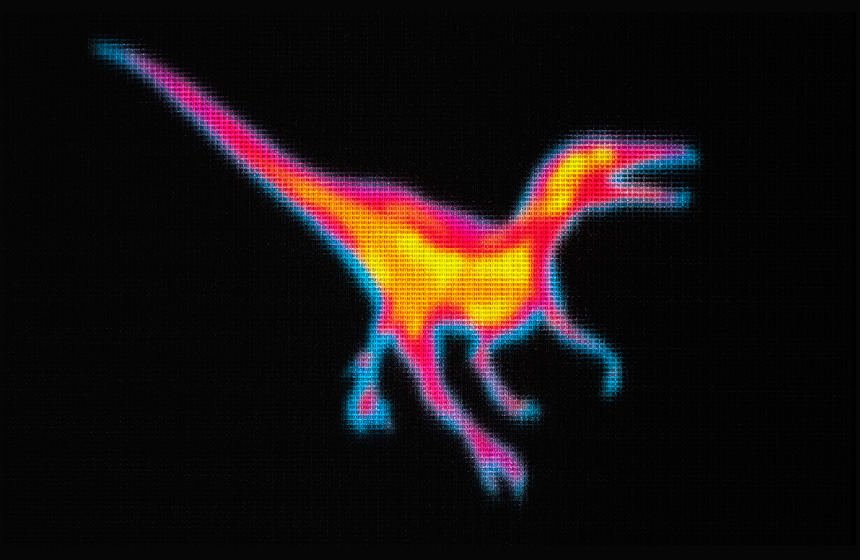Post by Infinity Blade on Jan 12, 2018 6:04:08 GMT 5
I concede that the orca's mobility in the air granted to it in this scenario, as well as its ability to knock over the tyrannosaur with a headbutt will give it the edge. I actually think these fantasy matchups will tend to favor the aquatic animal.
Although, since my last discussion in this thread, I have learned and remembered some things. Firstly that not all orca populations commit themselves to hunting comparatively large animals. Transients may hunt marine mammals (like whales), but resident orcas and offshore orcas exclusively feed off of fish (and squid?) and sharks, respectively (well, sharks are fish, but you know what I mean). To my knowledge, these aren't species that will pose any serious threat to the gigantic orcas. So I now believe the orca's victory is also contingent upon its experience in hunting large bodied and potentially dangerous animals; i.e. a transient would win, but resident and offshore orcas would probably not.
Secondly, not really related to the fight, but I'm not so sure about the orca's speed relative to Tyrannosaurus, in response to one of VD's replies to me above. There was a study (Fish, 1998) that observed swimming speed in four odontocete species, O. orca among them. There were nineteen different odontocete individuals and among them six were orcas; 96 swimming sequences for these four species were used for kinematic analysis (if you want to know about sample size). It addressed previously reported maximum speeds of ~28-34 mph, which were shipboard observations that may include bow-riding (not to mention, there's quite a large margin for error if you're going to estimate speed like that), thereby inflating actual top speed. The orcas achieved the highest maximum swimming speeds of all the species in the study, but that speed was 7.91 m/s, which is ~18 miles per hour and within the likely potential speed range possible for T. rex. This is actually more or less consistent with the word of Ford & Reeves (2008), where it's said that previous observations (Ford et al. 2005) recorded orcas chasing minke whales at speeds of at least 30 km/h (30 km/h is close to 28 km/h). Ford & Reeves (2008) do say that killer whales are 'reportedly' (read: expressing doubt) capable of swimming at speeds of up to 45 km/h, citing Williams (2002), but I have been unable to find that source and examine how this estimate was obtained.
Lastly, to so confidently claim that Tyrannosaurus wasn't particularly intelligent is simply unfounded other than if you use "uhhh, duh, itz uh dynosore so itzs dum". No one can confidently say just how intelligent Tyrannosaurus was; there is nothing like it nor anything particularly closely related to it living today, so while close relatives and/or animals with similar apex predatory niches may be able to give us some idea, we can still never be completely sure. Going off of them, however, predatory crocodiles are reasonably intelligent, and predatory birds can be too (to the point where there are pack hunting birds like the Harris' hawk). If birds, which pack more neurons per given area in their brains than mammals do, are anything to go by, it's possible Tyrannosaurus was smarter than the size of its brain cavity suggests. So while there's no reason to think it was exceptionally intelligent like an orca, there's also no reason to think it was so stupid as to not try to dodge something charging at >17 miles per hour (a speed probably close to the Tyrannosaurus' own) straight towards it.
Although, since my last discussion in this thread, I have learned and remembered some things. Firstly that not all orca populations commit themselves to hunting comparatively large animals. Transients may hunt marine mammals (like whales), but resident orcas and offshore orcas exclusively feed off of fish (and squid?) and sharks, respectively (well, sharks are fish, but you know what I mean). To my knowledge, these aren't species that will pose any serious threat to the gigantic orcas. So I now believe the orca's victory is also contingent upon its experience in hunting large bodied and potentially dangerous animals; i.e. a transient would win, but resident and offshore orcas would probably not.
Secondly, not really related to the fight, but I'm not so sure about the orca's speed relative to Tyrannosaurus, in response to one of VD's replies to me above. There was a study (Fish, 1998) that observed swimming speed in four odontocete species, O. orca among them. There were nineteen different odontocete individuals and among them six were orcas; 96 swimming sequences for these four species were used for kinematic analysis (if you want to know about sample size). It addressed previously reported maximum speeds of ~28-34 mph, which were shipboard observations that may include bow-riding (not to mention, there's quite a large margin for error if you're going to estimate speed like that), thereby inflating actual top speed. The orcas achieved the highest maximum swimming speeds of all the species in the study, but that speed was 7.91 m/s, which is ~18 miles per hour and within the likely potential speed range possible for T. rex. This is actually more or less consistent with the word of Ford & Reeves (2008), where it's said that previous observations (Ford et al. 2005) recorded orcas chasing minke whales at speeds of at least 30 km/h (30 km/h is close to 28 km/h). Ford & Reeves (2008) do say that killer whales are 'reportedly' (read: expressing doubt) capable of swimming at speeds of up to 45 km/h, citing Williams (2002), but I have been unable to find that source and examine how this estimate was obtained.
Lastly, to so confidently claim that Tyrannosaurus wasn't particularly intelligent is simply unfounded other than if you use "uhhh, duh, itz uh dynosore so itzs dum". No one can confidently say just how intelligent Tyrannosaurus was; there is nothing like it nor anything particularly closely related to it living today, so while close relatives and/or animals with similar apex predatory niches may be able to give us some idea, we can still never be completely sure. Going off of them, however, predatory crocodiles are reasonably intelligent, and predatory birds can be too (to the point where there are pack hunting birds like the Harris' hawk). If birds, which pack more neurons per given area in their brains than mammals do, are anything to go by, it's possible Tyrannosaurus was smarter than the size of its brain cavity suggests. So while there's no reason to think it was exceptionally intelligent like an orca, there's also no reason to think it was so stupid as to not try to dodge something charging at >17 miles per hour (a speed probably close to the Tyrannosaurus' own) straight towards it.





